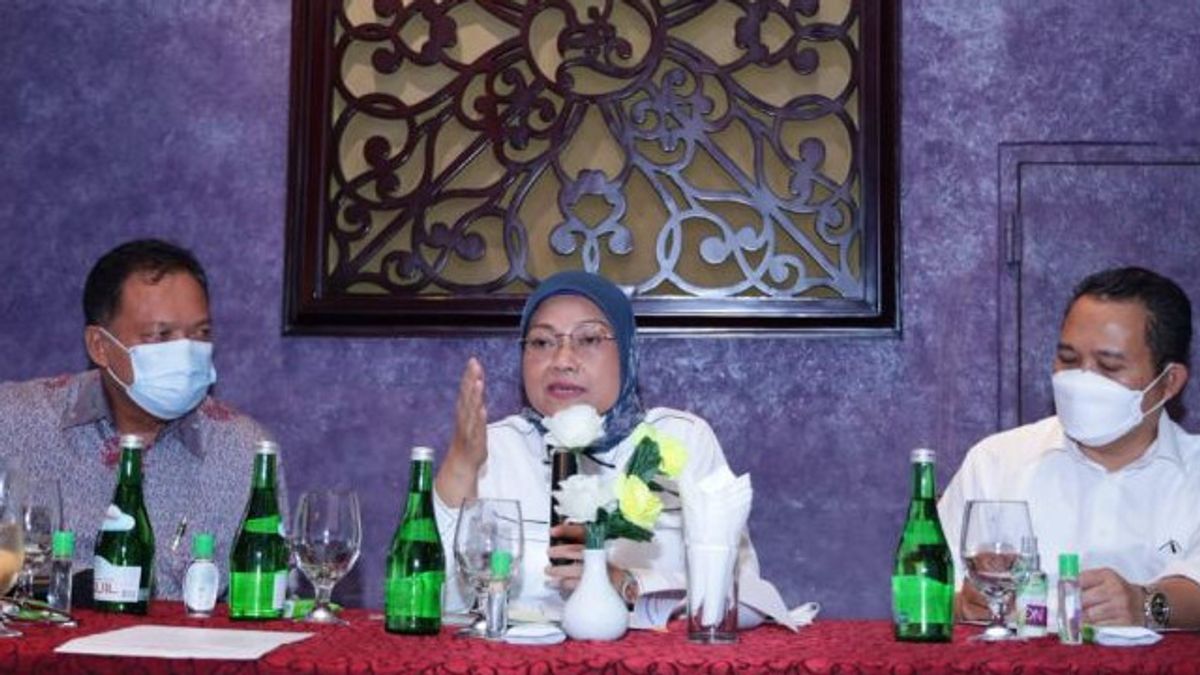JAKARTA - The Ministry of Manpower (Ministry of Manpower) has prepared and encouraged three steps to create conducive, harmonious and equitable industrial relations in the oil palm plantation sector, one of which is to equalize perceptions and interpretations of the implementation of working relations and protection of workers. In a press statement received by the Ministry of Manpower in Jakarta, Wednesday, June 8, the Minister of Manpower (Menaker) Ida Fauziyah said these various steps were needed because the oil palm plantation sector has different characteristics from other sectors. It is also synonymous with seasonal work, absorbing a large number of workers with low skills and education. "The palm oil sector is one of the industrial sectors that plays an important role in the Indonesian economy. However, recently, the declining performance of palm oil exports and the impact of the COVID-19 pandemic raises various possibilities. the worst for workers/laborers in the palm oil sector," he said. Speaking in a discussion with the Indonesian Palm Oil Association (GAPKI) on Tuesday (7/6), the Minister of Manpower explained that the first step he had prepared was to equalize perceptions and interpretations of the implementation of working relations and the protection of workers in the workforce. the palm oil sector, as regulated in Government Regulation Number 35 of 2021 concerning Specific Time Work Agreements (PKWT), Outsourcing, Work Time Rest, and Termination of Employment. including daily workers. Data from Sawit Watch still shows that about 70 percent of workers in the oil palm plantation sector are day laborers. This has an impact on protection and working conditions," he said. The second step is to obtain information on the conditions of working relations in the palm oil sector before and after the COVID-19 pandemic.
While the last step is to get ideas and recommendations on the implementation of employment relations in improving regulations related to employment relations in the palm oil sector, in order to increase work productivity and worker welfare. cheap, unpaid overtime wages and contrary to existing laws and regulations. There is also the issue of sectoral wages that re-emerged because it is considered that there are sectors that are growing when the majority of sectors are experiencing a decline. "We hope the palm oil industry/companies will help the government is thinking about how to create industrial relations that are conducive, harmonious, just, and capable of responding to all sectors. We cannot force a sector/industry that has negative growth, we cannot force it," said Ida Fauzyah. General Chairperson of GAPKI Joko Supriyono said his party supports the government's policy on employment in the oil palm plantation sector. "Whatever, we are all committed to supporting the regulations set by the government," he said.
The English, Chinese, Japanese, Arabic, and French versions are automatically generated by the AI. So there may still be inaccuracies in translating, please always see Indonesian as our main language. (system supported by DigitalSiber.id)













